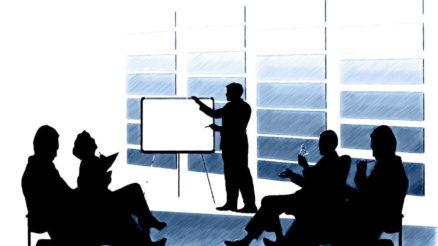In our professional lives, we often have to interact with others in a business setting. Whether it’s at a meeting, during lunch, or when passing in the hallway, we want to make sure that we’re acting in a way that is respectful and appropriate.
Many people are unsure of the appropriate etiquette to follow when working. No one can deny the importance of etiquette in workplace.
There are many things to consider, such as what to wear, how to act in meetings, and even how to communicate with colleagues.
In this blog post, we will explore importance of etiquette in workplace. We’ll discuss some common scenarios and provide tips on how to act accordingly.
Keep in mind that there may be region-specific or company-specific etiquette guidelines that you should also follow.
What is etiquette in workplace?
Etiquette at work is a set of unspoken and unwritten rules that govern how we interact with our colleagues. It includes things like how we dress, communicate, and conduct ourselves in meetings.
There are many different opinions on what is considered proper etiquette. What may be acceptable in one company may not be acceptable in another.
So, a set of rules that regulate social behavior standards in the workplace is work etiquette. It covers a broad range of topics for workers from body language, behavior, technological use, to formal and informal conversation at workplace.
Importance of etiquette in workplace?
Etiquette makes working with and getting along with your coworkers simpler. As a result of this, you will have a strong relationship with coworkers and make a good team.
Workers following etiquettes are more likely to open-minded, tolerant and show respect to everyone.
It will ultimately lead to professional growth and successful career. That also helps to have more diverse team at a workplace.
The biggest advantage of adopting good etiquettes at workplace is these become part of person’s personality and character. Employees with good etiquettes usually behave well in public and private life.
Tips for following proper etiquette at workplace
1. Communicate clearly and respectfully
Communication is one of the most important aspects of etiquette at work. This includes both verbal and nonverbal communication. When communicating with coworkers, it is important to be clear and concise. Avoid using jargon or technical terms that they may not understand. If you need to deliver bad news, do so in a way that is respectful and considerate.
Be respectful of your colleagues, regardless of their position within the company. This includes using appropriate language, refraining from personal attacks, and avoiding gossip.
2. Dress Appropriately for Work
In today’s settings, performance and appearance are frequently intertwined, and both are essential to a company’s ability to succeed.
A professional appearance makes you feel more confident and promotes growth and brand loyalty. Employer equality is demonstrated by having a dress code. Although many organizations do not have it, you should still attempt to dress formally.
If you frequently interact with potential clients, be sure to dress more professionally for the workplace. This will make it easier for people to respect you. A certain way to ensure you’re wearing appropriately is to emulate your boss’s sense of style or formality.
3. Try not to disrupt
Cutting short a conversation to add your perspective or input implies that you value your opinion above theirs or that you have no interest in learning what they have to say.
If you get an insightful thought while someone is speaking, write it down, wait until they are finished, and then share your views. In addition to helping you remember what you were going to say, writing it down also helps you get from your thoughts to the paper, preventing you from simply waiting to answer rather than paying attention to what the other person is saying.
4. Be an active listener
Active listening is a key part of effective communication. When someone is speaking, please make an effort to listen to what they’re saying. This includes making eye contact, avoiding distractions, and clarifying information if necessary.
5. Respect personal space
Everyone has different boundaries when it comes to personal space. It is important to be respectful to your coworkers at all times. This means being courteous and professional in your interactions and avoiding any behavior that could be considered offensive or disrespectful.
When you are respectful to your coworkers, you create a positive work environment where everyone can feel comfortable and respected. This can help to improve morale and increase productivity. Additionally, showing respect to your coworkers is a sign of professionalism and can help you to build positive working relationships.
6. Follow the company’s guidelines
Each company has rules and guidelines that employees are expected to follow. Familiarize yourself with these so that you can avoid breaking any rules. Be punctual for meetings, conference calls, and other scheduled events. If you’re running late, let the relevant parties.
7. Be mindful of your body language
Your body language says a lot about you, so be mindful of how you carry yourself. Avoid crossing your arms, slouching, or fidgeting. Instead, try to maintain an open and welcoming posture.
Types of etiquette at work
You need to be aware of many different aspects of etiquette when you are at work. These include:
a) Meeting Etiquette
Certain etiquette should be followed when you are in a meeting. This includes arriving on time, being prepared, and respecting other people’s time. When giving a presentation, be sure to practice beforehand so you can deliver your material confidently and professionally.
b) Phone etiquette
A specific etiquette should be followed when using your phone at work. This includes silencing your phone, avoiding personal calls, and being mindful of your tone. Being respectful of other people’s time and space, when you are on the phone is also important.
c) Email Etiquette
An email is a common form of communication at work. A certain etiquette should be followed when sending and receiving emails. This includes using a professional tone, being clear and concise, and proofreading your email before you send it. Additionally, it is important to be mindful of the time difference when sending emails to colleagues in different time zones.
d) Digital etiquette
With the rise of social media, it is important to be aware of digital etiquette. This includes respecting other people’s privacy, avoiding offensive or harmful language, and refraining from posting confidential information. Additionally, it is important to be mindful of the time difference when sending emails to colleagues.
What should not be done in an Etiquette Workplace?
Sometimes it can be tricky to know what is considered acceptable behavior. Here are some things that you should avoid doing at work:
1. Don’t have personal conservation while working
It is important to focus on your work tasks when you are at work. Avoid having personal conversations with coworkers.
Suppose you need to speak on the phone privately or personally while at work; try to avoid doing so at your desk where other people can overhear you. If your workplace doesn’t have a conference room available, it could be best to make your call outside.
2. Avoid bringing your emotions to work
While it is important to be professional at work, respecting other people’s emotions is also crucial. Avoid getting angry or upset. Leave your emotions at the door.
When you arrive at work, leaving your emotions at the door is better. Your desk neighbor isn’t interested in your weekend sob story. It’s usually a good idea to take some private time to manage your emotions if you find it difficult to concentrate on your work due to something that has happened.
Alternatively, if something at work is upsetting you, speak with the human resources department or your supervisor to get it resolved, so it doesn’t affect your ability to do your job.
3. Don’t gossip about anything
Gossiping is a form of unprofessionalism and can create a negative working environment. If you have something negative to say about a colleague, avoid gossiping and speak to them directly.
Gossiping can give the impression that you are dishonest or uncooperative, neither of which will serve your interests professionally. If the target of the gossip hears about it, it could also be legitimately harmful.
4. Don’t boss people around
Bossing people around is a sign of disrespect. If you need someone to do something, ask them politely. Please do not demand that they do it.
5. Don’t be nervous
Being nervous is perfectly normal. However, try to avoid showing your nerves. This can be done by taking a few deep breaths and speaking in.
6. Don’t be afraid to ask for help
If you need help with something, don’t be afraid to ask for it. This shows that you are willing to learn and not afraid to ask for help when needed.
7. Do not be reluctant to ask questions
No matter how ridiculous they appear, questioning will help you clarify objectives and prevent you from mistakenly finishing an entire job to find out you did it all wrong. So feel free to ask your questions, but make sure you pay attention to the response.
Final Words
Standard business etiquettes aren’t something that everyone follows. But practically every organization must adhere to certain formal workplace etiquette guidelines. Following proper etiquette can make your coworkers’ days more pleasant by working more effectively.To create and maintain a team of workers who trust, care about, and value one another, proper workplace etiquette is crucial.



